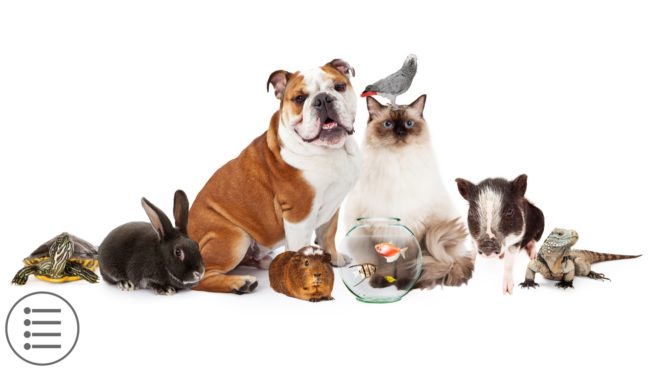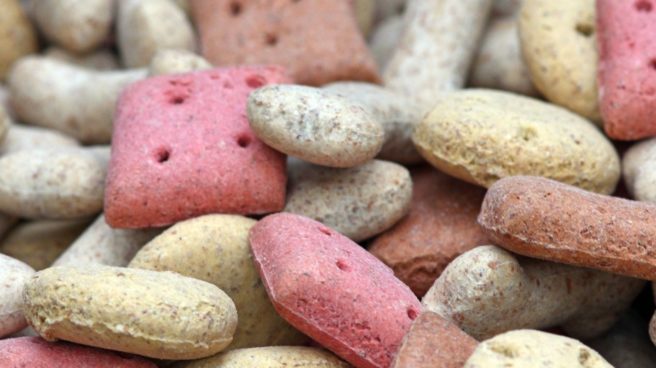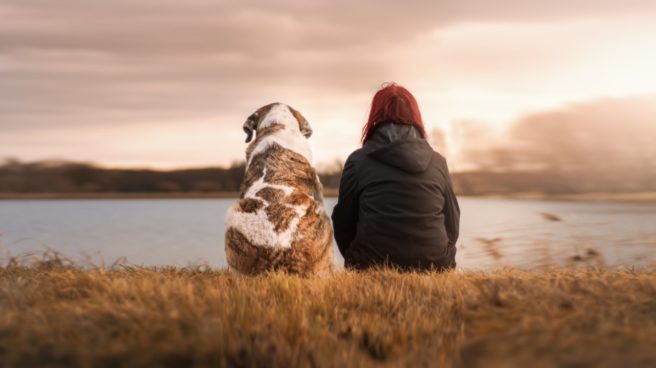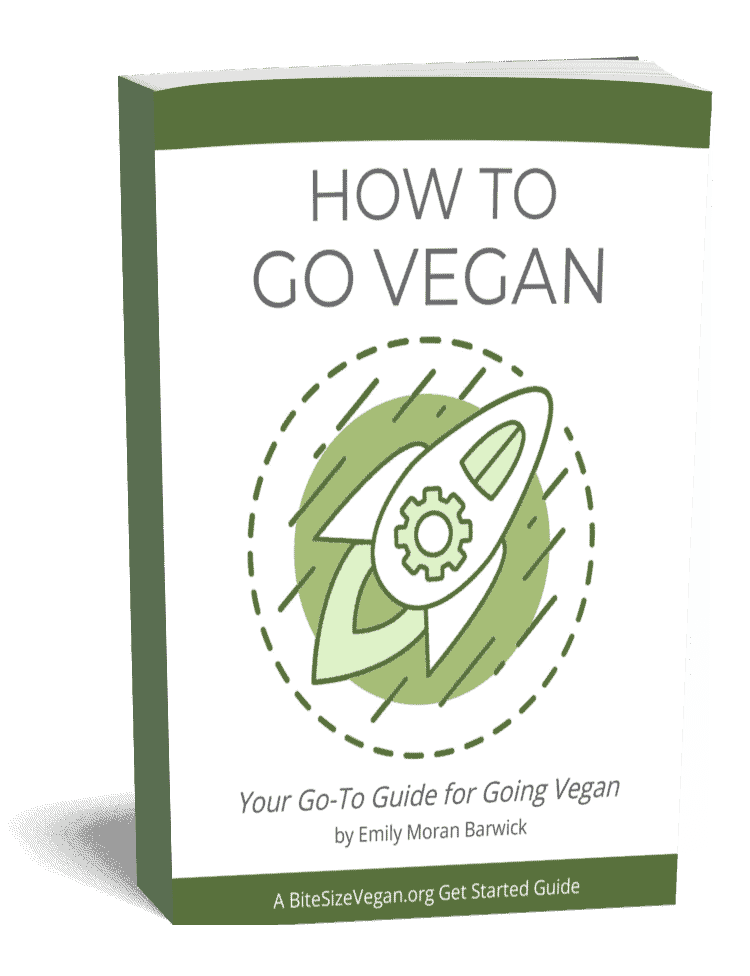This video is about how we are feeding our pets TO DEATH. aside from the moral implications of what we feed our animals, there are very valid health concerns related to many of the lesser-known ingredients in common pet foods.
Today we’re going to look at how we are feeding our pets to death. 53% of adult dogs and 55% of adult cats are overweight or obese. Believe it or not there are actually fat camps now for your overweight pets and Pfizer developed a drug called Slentrol to treat canine and feline obesity. More importantly than how much we are feeding our pets, is what we are feeding our pets. The gulf between what most of us believe we are feeding our meat eating cats and dogs and what we are actually giving them, is enormous.
About 50% of every food animal does not get used in human food. Whatever remains of the carcass, the head, feet, bone, blood, the intestines, and their contents, meaning poop, lungs, spleens, livers, ligaments, fat trimming, unborn babies, and other parts as well as animal feed, fertilizer, industrial lubricants, soap, rubber, and other products, goes into the “loving ingredients” of your pet’s food. Pet food also includes the so-called “4-d” animals: the dead, dying, diseased, and disabled.
In the book “Obligate Carnivore” author Jed Gillen makes a compelling case for a vegan diet for cats and dogs. If you think that a vegan diet is unnatural for your cat or dog, Jed asks us to look at how natural the ingredients are in meat-based pet foods. The meat in our pet food is stuffed with for whatever reason cannot the sold as human food. It’s so bad that it cannot even be put into hot dogs. Think about that- if the industry that uses reject meat parts, actually rejects meat parts, you know that you’re dealing with some serious strange.
Jed says that “meat doesn’t mean filet mignon. It doesn’t mean that it has passed any sort of inspection, or that it necessarily has any nutritional value whatsoever. It can be blood, bone or brain tissue. It can be road kill. It can even be cats and dogs.” The FDA conducted a study in which they looked in pet food for pentobarbital, the most commonly used euthanasia drug. The results? They found it. Forced cannibalism seems sadistic, but in terms of what’s really unnatural, it’s not even close.
Spoiled supermarket meats find their way into cat and dog food. The kicker is that they are not required to take them out of the Styrofoam packages first. And with the cats and dogs that go into pet food, flea collars are not routinely removed. So is this really part of the natural healthy diet of our dogs and cats?
Many people defend mainstream pet food by saying “it’s my pet’s natural instinct to eat meat.” there is a huge difference between a lion or wolf killing and eating another animal, and a domestic cat or dog eating an animal that was raised, tortured, slaughtered, rendered extruded, packaged, purchased and served by humans.
Which represents the greater crime against nature? Providing cats and dogs with a vegan diet that is specially formulated to meet their nutritional needs, or giving them a highly processed meat-based food consisting of feathers, tumors, nerve tissue, cat and dog carcasses, ground-up plastic, and a poison specifically designed to kill them? A cat or dog can live and be healthy without having animals killed for food. Therefore if we give them meat, we are participating in taking animal life merely for the sake of their appetite. Jed puts it succinctly, “just because our cats and dogs don’t understand and cannot be held morally responsible for this, does not mean that no injustice has been committed.”
If everybody stopped eating meat but continued to demand that meat be made available for their pets food, the animal slaughter industry would continue to be profitable and animals would continue to suffer needlessly. Jed Gillen brings up a good point saying “i always wonder how some people can be so concerned about the supposed ‘cruelty’ of depriving cats and dogs of meat, while at the same time finding it so easy to dismiss the extreme suffering that is experienced by the animals that are made into that meat for cats and dogs”.
The argument that it’s not natural is a cop-out. What’s natural has never been the basis for what is moral. Coming from a purely moral standpoint, it wouldn’t really matter that vegetarian food be healthier than meat in order to conclude that it’s the best choice. It just so happens that a vegan diet has been shown to be healthier for cats and dogs.
Perhaps you’re thinking “that’s not what my veterinarian says!” in, in truth, the majority of veterinarians aren’t educated about vegan diets for animals. The source of educational materials for the few nutritional courses that veterinarians do take, are written by the meat pet food companies. They consist of the results from studies that the companies themselves have conducted or paid to have done. Many people who are vegan continue to feed their animals meat-based pet food.
When the pet food industry tells us that pelletized or canned slaughter house waste products, the bodies of dogs and cats, moldy grains, flea collars, euthanasia solution, hormones, chemical preservatives, pesticides, livestock antibiotics, and toxic levels of heavy metal like lead and mercury, are not only adequate but actually necessary for proper nutrition, many of us accept this claim at face value. For many vegans this is the last slaughterhouse industry lie to which we are still susceptible.
The final hold-out on the vegan pets debate is always cats. Cats require taurine which many people argue they can only get from meat sources. However as long ago as the 1920’s, the old method of isolating taurine was outdated, having been replaced with the more efficient process of creating it synthetically. The greatest irony of the whole foolish taurine issue, is the simple fact that most cats living today have been relying on synthetic taurine all of their lives anyway.
The high temperatures of a rendering plant cause whatever vitamins and such that were present at the outset to denature. All modern meat-based pet foods utilize the exact same synthetic taurine that the vegan cat food manufacturers do. So you’ve told me about all of the horrible stuff in my pets food. What can i feed them? There are a variety of vegan dog cat foods. So if you try one and your pets not satisfied, don’t give up. In “Obligate Carnivore” Jed Gillen talks specifically about how to make the switch.
I hope this has provided you with all the information and inspiration to make the switch with your pets’ diets. For their health, for the planet, and for the animals!
— Emily Moran Barwick







Thank you so much for all the information ! I live in France where it’s quite difficult to find vegan food for dogs and cats, I’m trying to get my pets vegan and you help me a lot with this article !
sure thing! thank you for watching :) and many online sources may deliver overseas. if nothing else, you can make your own! :)
Yes! Make your own!
You can always consult a good, vegan doctor of veterinary medicine such as Faith Albright.
Somebody should make a list of vegan animal dieticians.
Ok Ok Emily I’m going to finally do it. I have been vegan for say 2 years now. My puppies are 3 and 2 my kitty is 17, YES 17! This is one step I have not even tackled just yet. Yes no animal products by mouth I have been breaking away from Health and Beauty aids (this is a tough one) I would love to see a “nugget on shampoos, soaps, makeup and other products. So now I will look into breaking them away from the food I give to them. Thanks for all that you do, Keep up the great work!
Another amazing video, this one though “old” is one of the older vids I missed way back then..so glad I found it. Didn’t know about the “already eating synthetic taurine” side..I don’t own pets but will pass that info to others!
Also so glad BSV is not afraid to say “just because cats/dogs can’t be held morally responsible” like humans, doesn’t mean harm wasn’t done, and to debunk the “unnatural” ..yeah, domestication wasn’t “natural” either as you say!
Found this page by looking for where to share another amazing science that just came out (are scientists doing more AR related research than in past? seems like it..)
Domestic cats, I’ve read, also kill far more birds and other wildlife, than they need for eating..they often don’t eat at all.. Now science has found a super cheap, basic way to cut down on unnecessary (and sometimes ecosystem harming) killing of wildlife by domestic cats: Scrunchies!
Sounds like April fool’s joke but it’s not..March 20, 2015 article: “In a new study, West Australian researchers found putting a scrunchie-like collar on cats reduced the amount of native wildlife killed by more than half.”
Apparently because wildlife sees the bright colors on the cat, and is warned…far less unnecessary death and suffering (and ecosystem loss) for wildlife.meanwhile cats still get to follow their instincts, get exercise and so on. All that plus an adorable photo of a cat with a colorful soft scrunchie collar, here:
https://www.abc.net.au/news/2015-03-20/scrunchies-prevent-wildlife-death-study-finds/6337222
“..Robyn Brown’s two cats, Chocco and Milo, were recruited for the study..they used to be active wildlife hunters and would often leave birds like wrens on her doorstep. ‘We were very concerned about that. We’ve tried everything. We’ve tried double bells and all kinds of things and we’ve tried locking them in at night time,’ she said.
“But she said since the collars were placed on her cats more than two years ago, they had not caught a single bird ‘We just can’t believe it. We’re very happy,’ Ms Brown said.”
” ‘I’ve always loved cats … I didn’t want to give up cats because I had birds as well, and I loved having them in the environment, but now I can have both’
Hi!
I agree on all what you say but not on the way you say it for the following passage: “the fda conducted a study in which they looked in pet food for pentobarbital, the most commonly used euthanasia drug. the results? they found it. forced cannibalism seems sadistic”.
The link you give on the FDA study show that they found pentobarbital but they search cat and dog DNA in the 2000 samples afterwards and did not find any, stating that it might come from cattle or equine. I agree that it is almost certain that pentobarbital came from euthanized dogs and cats[1] (besides several veterinarians said they it is not used for cattle) but the way you assert it certain is problematic (even if is credible, the collar point is also an assumption). The source of it were not found and I am astonished both that they stopped searching and testing since 2002.
[1] https://articles.latimes.com/2002/jan/06/news/mn-20784
By the way this FDA study stating that traces of pentobarbital is safe for dogs is highly questionable (almost a bad joke) : they tested living dogs by exposing them to traces of pentobarbital during “only” eight weeks . I don’t approve testing on animals, my point here is that they compared eight weeks of exposition versus years of eating dog food. Besides they only measured whether the liver was growing and whether an enzyme was produced in significant reaction but they took no interest in the heart! Pentobarbital has its deadly effect on the sympathetic nervous system, stopping the heart and the lungs.
Thank you for you activity on the vegan topic!
thanks for the additional info- i’ll certainly look into it!
How about not OWNING them in the first place?
That is a good point; is it congruent with a vegan lifestyle to even have any pets? In a perfect world it would be nice if all animals could just live freely in their natural habitats. I am certainly against breeding animals for pets, but now that millions of domestic animals already exist, I couldn’t just let them roam the streets to die of starvation, disease, and injuries. In my opinion our goal should be to stop breeding them and provide safe, loving homes for the existing (neutered) ones.
Here’s another question: Is it vegan to have service animals and working animals, such as rescue dogs and police dogs? I think most service animals are well loved and love what they do.
Hi Michelle,
You asked, “Is it vegan to have service animals and working animals, such as rescue dogs and police dogs? I think most service animals are well loved and love what they do.”
The answer is no.
There are many reasons but here’s one for you to consider. If the policeman down the road took your newborn daughter and kept her in his cellar for her entire life, would she feel happiness if once a year he unplugged a hole in the foundation to let a little light in? Domesticated animals have no idea of the far-reaching deeply connected joy they would feel if they were living in bodies selected by natural evolution, in ecosystems unaffected by humans, and in societies of their own choosing. You have no idea what you are missing. But if the policeman tosses you a scrap once in a while, it’s okay, right? That’s love.
Thank you, jtr!
How about the total elimination of all animal domestication? But wait! What about our own domestication, as evidenced in codependency? Check out Ren Hurst.
I would like to know the source for the information about pet food producers not having to take out the spoilt supermarket meat out of their packages.
Thank you